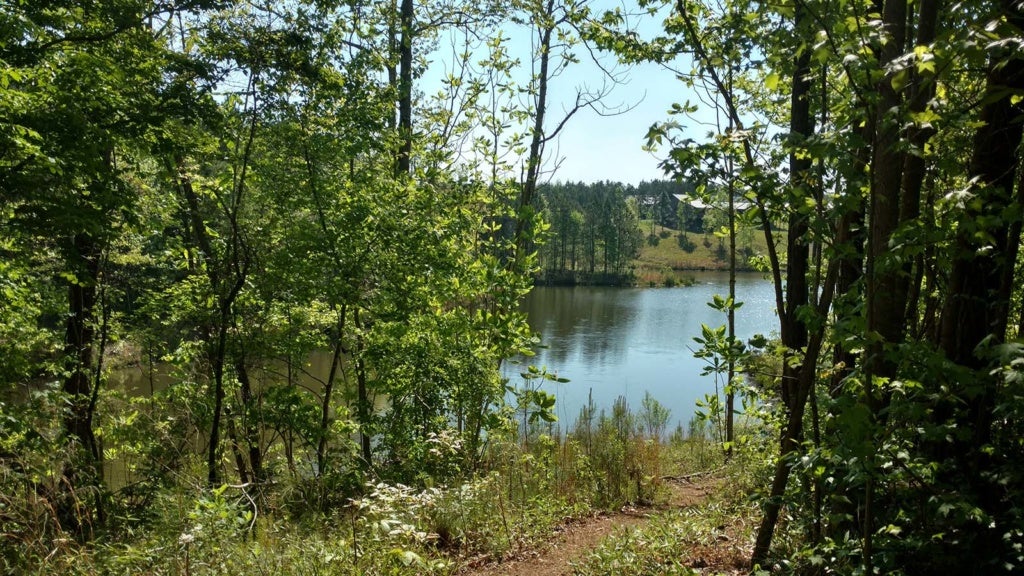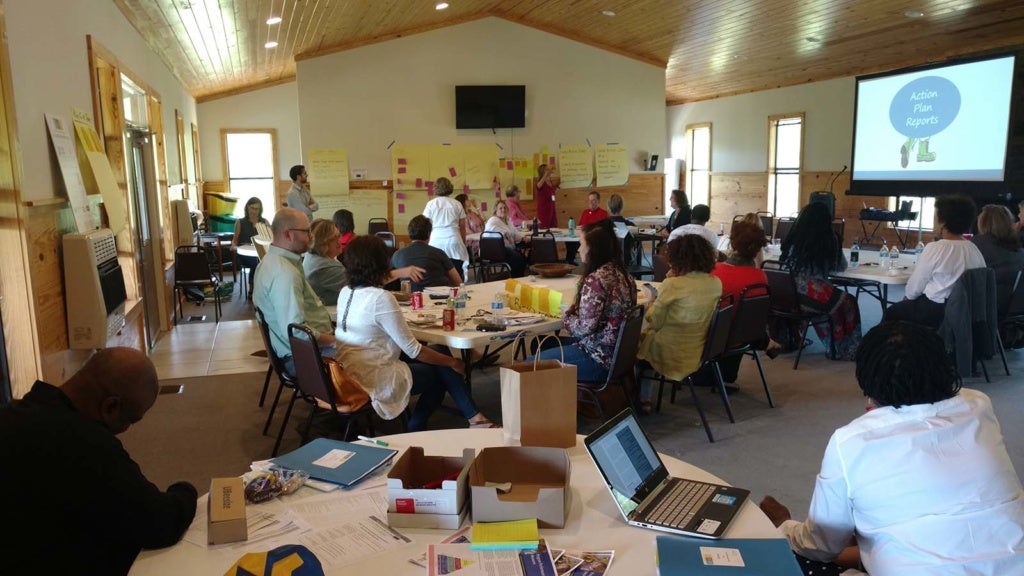Sitting on the back porch of the cabin, the sounds of spring came to me: Tree frogs chirped, pond frogs croaked, and birds were taking to the wing as the sun set over the little lake at Camp McDowell. I traveled from Washington, DC to this beautifully green part of the country in Walker County, an hour outside of Birmingham, Alabama, and finally had a moment to take it all in. I breathed in the fresh air and relaxed.

The tranquil lake at Camp McDowell, home to frogs and birds of all sorts.
After a while, I checked my phone but I had no signal. You probably know high-speed connectivity can be spotty in rural areas, but lack of access always comes as an unfortunate surprise to folks like me who live in big cities but who work with rural communities. For people who live in areas without access to broadband internet, it’s more than unfortunate. It is a daily struggle that holds back rural communities, stunting many things from childhood education to entrepreneurial innovation.
To those of us who gathered at Camp McDowell, lack of high-speed connectivity was merely an annoyance. In early May, the Aspen Institute Community Strategies Group facilitated the second peer-learning workshop for Collaboration Institute 3.0, an initiative launched by The Women’s Fund of Greater Birmingham to catalyze the development of three new 2Gen hubs in the Birmingham area. If you’re not familiar with 2Gen, it is an innovative approach to reducing intergenerational poverty by moving children and their parents towards educational success and economic security together. The Aspen Institute is home to ASCEND, the national hub for 2Gen breakthrough ideas and collaboration, as well as my own Community Strategies Group, which specializes in facilitating transformative peer-learning sessions. The Women’s Fund of Greater Birmingham brought in Aspen CSG to facilitate peer-learning for its multi-year cohort of new 2Gen hubs, two rural and one urban in the multi-county Birmingham region.
These hubs won’t be new “organizations” once they are up and running. Instead, each hub is a productive new collaboration among at least three existing local organizations, working together to better serve families. These hubs all face common challenges, including how to develop and coordinate common family data intake and analysis across organizations working in childcare, workforce development, and housing sectors. One way these hubs are seeking to smooth out the bumps of common intake and data sharing is through a single data platform that can centralize client information, keeping coaches up to date and client data secure.

On the final day of convening, the 2Gen Hubs all engage in action planning to advance their work in family economic success.
Our personal experiences at Collaboration Institute 3.0 may have been touched by spotty internet connectivity, but we built relationships the old-fashioned way, through face to face interactions. Aspen CSG’s model of peer-learning is tried and true: every convening like the ones we designed for Collaboration 3.0 involves multiple days of peer advising, expert coaching and action planning. Marvelous rural places like Camp McDowell in Nauvoo helps people escape from day-to-day routines and focus completely on the task at hand. Sometimes this means you don’t have your email at your fingertips, but it also means you have days of beautiful sunsets and conversations with engaged and passionate professionals who take advantage of the venue to learn new skills and share their wisdom.

